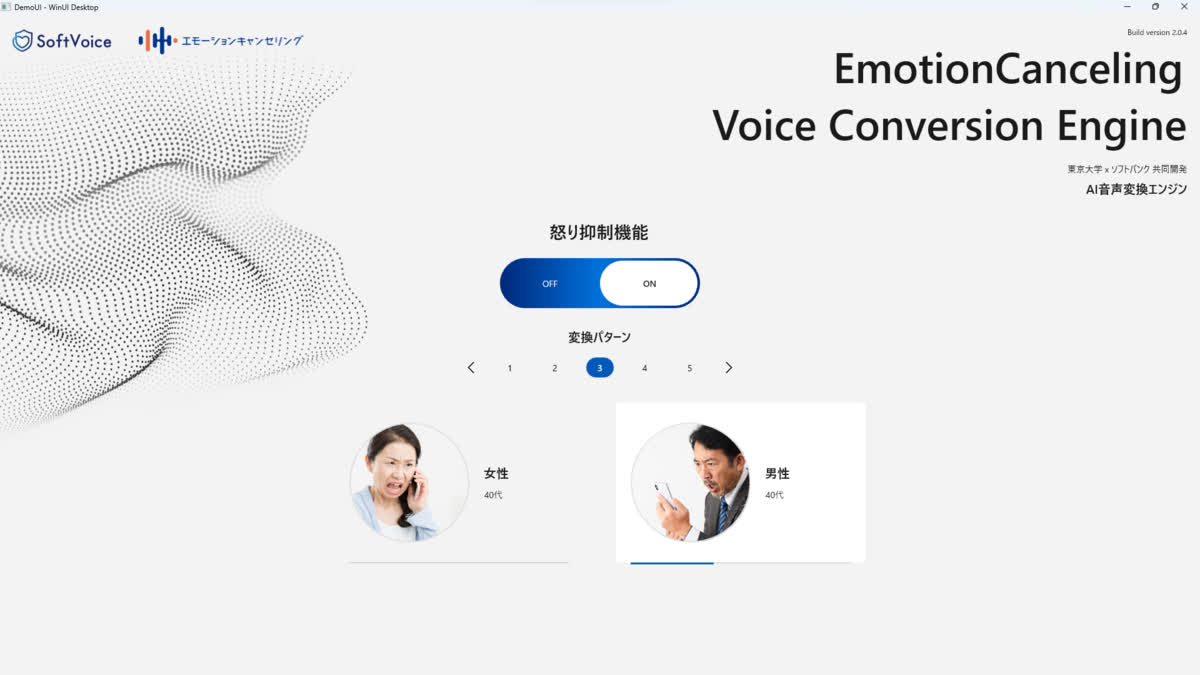Forward-looking: As generative AI gains popularity, many worry that it might replace some human jobs, with customer service positions possibly being among the most critically endangered. However, SoftBank thinks that it has found a way for AI to make customer service workers' lives less stressful.
Japanese investment giant SoftBank is developing an AI that aims to alter a caller's voice if they begin shouting at customer service or call center employees. The company plans to release the tool sometime next year.
The EmotionCanceling Voice Conversion Engine, as the AI is dubbed, changes the pitch and tone of a caller's voice when activated, but not their words. The system is designed to ensure that the recipient can still tell the speaker is upset, but it makes their voice sound far less threatening.
In the above video (at around four and a half minutes), the AI heightens a male caller's pitch to remove its harshness, and it can also lower a female caller's voice for a similar effect. The demonstration shows a manual activation switch, indicating that employees can turn on the AI after beginning a belligerent call.
SoftBank began researching the project around 2021 after employee Toshiyuki Nakatani saw a TV program about employees suffering abuse from customers. Instead of training the AI on public data – a common practice that has drawn ire toward tech giants – Softbank hired 10 actors who recorded over 100 phrases in various tones.

Another way the AI can help employees is by helping them avoid long calls. SoftBank's research found that, aside from angry customers, callers' refusal to hang up was another common complaint from workers. If the tool senses that a caller has been on the line for too long or shouted at personnel too much, it can warn them that it will automatically terminate the call.
Company CEO Masayoshi Son has recently made extremely optimistic predictions regarding generative AI, so it's unsurprising that SoftBank would try to use the technology for ambitious solutions. Late last year, Son claimed that an Artificial General Intelligence – a theoretical AI that could perform any logical task – would be made by the end of this decade. He also thinks that, within the next 20 years, AI could become thousands of times smarter than humans. Some tech giants share his enthusiasm but many other commentators are far more cautious.
The EmotionCanceling Engine is set for release within fiscal year 2025, which ends on March 31, 2026.
